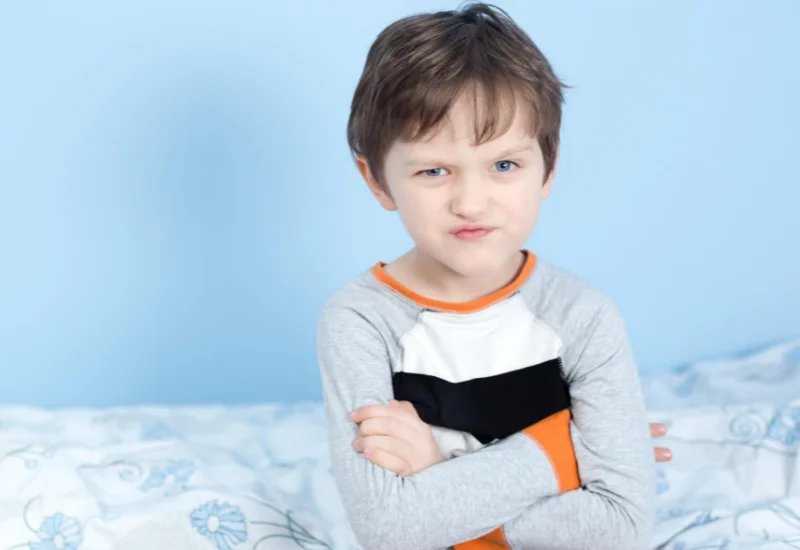Bedwetting is a common problem that frequently occurs at nighttime in children. The medical name for this condition is known as nocturnal enuresis. If you wake up your child in the morning and notice that the pajamas or sheets are soggy, your child probably had another episode of bedwetting. Some people blame it on incomplete potty training, but there may be other underlying causes of this problem. The good news is that bedwetting can be managed with medical assistance. Seeking medical help early can also prevent psychological distress and other effects on a child’s mental health.
What Are The Causes of Bedwetting?
Unlike the common assumption, bedwetting is not only caused because the child is too lazy to get to the toilet at night. In the majority of cases, there may be a medical or psychological reason for this issue. Because the child is already embarrassed, parents must be supportive and reassuring. Understanding the underlying cause can help both the child and parents. Some of the common causes of bedwetting include:
-
Genetic inheritance: If you have had family members with a history of bedwetting, the genes can also transfer to your child. Research indicates that over 70% of the children that suffer from bedwetting have either one or both parents that also struggled with this problem in their childhood.
-
Slow response: When your bladder is full, a signal is sent to the brain to empty it. This is under voluntary control. But in some children, this response may be delayed due to the slow development of nerves. They may not recognize the signal during deep sleep.
-
Small bladder capacity: Some children naturally have a small bladder that may grow as they grow up. Bedwetting may be more pronounced in such cases if they drink too much water, especially before going to bed.
-
Hormonal imbalance: Antidiuretic hormone (ADH) is released to urine production from the kidneys. Fluctuations in the levels of this hormone may cause bedwetting.
-
Diabetes: Bedwetting may be an early sign of type 1 diabetes in some children. It may present with other symptoms such as frequent urination, passing a large amount of urine, etc.
-
Sleep disturbances: Children who suffer from sleep apnea may also present with episodes of bedwetting. The child may also display drowsiness or tiredness during the daytime.
-
Constipation: Irregular bowel movements or withholding stools can lead to constipation. Constipation puts extra pressure on the urinary bladder, which may result in bedwetting.
-
Stress: If a child is constantly stressed for some reason, they may wet their bed at night involuntarily. Bedwetting itself can increase stress; therefore, the episodes may become frequent over time.
-
Urinary tract infection (UTI): This isn’t very common in children but may cause bedwetting. It may also present with other symptoms such as a burning sensation during urination, blood in urine, etc.
When to See a Doctor?
If your child is over 6 years in age and presents with frequent episodes of bedwetting, it is necessary to consult a healthcare expert. The child may be embarrassed or hesitant to go to a doctor for this problem, so constant reassurance from parents is required.
Your doctor will inquire about the history of symptoms, frequency of bedwetting episodes, previous medical history, and possible reasons for stress. If they suspect an underlying condition, they may require lab tests such as urinalysis, urine culture, blood tests, urodynamic testing, etc., to confirm the diagnosis.
How to Manage Bedwetting?
Bedwetting can be controlled by certain lifestyle and behavioral modifications. Medications are not usually recommended unless necessary. One of the initial modifications is to limit your child’s fluid intake two to three hours before bedtime. Sodas, frizzy or caffeinated drinks should also be avoided at night time.
Bladder training is a successful method to reduce the episodes of bedwetting. Ask your child to sit on the toilet five to six times a day and follow a schedule. Practice this habit even if your child is reluctant to do it. This will improve the bladder-to-brain response over a few weeks.
There is another behavioral therapy technique that involves the use of bedwetting alarms. These alarms or sensors are attached to the pajamas of the child. They go on when wetness is noticed. These alarms train the child to wake up from sleep and use the toilet if they urge to urinate. Adult help may also be required.
Medications are given as a last resort if other techniques fail. These may include desmopressin, oxybutynin, imipramine, etc. Medications are only to be used in limited dosages as prescribed by your doctor.
Visit Cura4U for further details on medical conditions, diagnostic tests, and online consultation. Register yourself and your loved ones today for optimum healthcare services!












